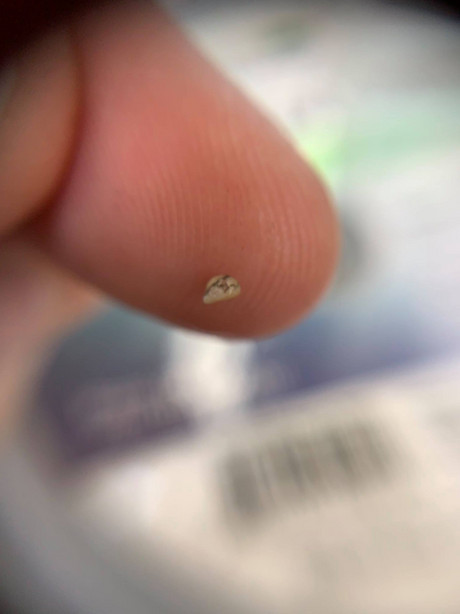Oregon quarantines aquarium moss balls to stop invasive zebra mussels - Bend Bulletin
Oregon quarantines aquarium moss balls to stop invasive zebra mussels - Bend Bulletin |
| Oregon quarantines aquarium moss balls to stop invasive zebra mussels - Bend Bulletin Posted: 21 Apr 2021 12:15 PM PDT  SALEM — The Oregon Department of Agriculture has filed an emergency rule blocking imports of marimo, or moss balls, infested with harmful invasive zebra mussels. Moss balls are used in aquariums, and act as a natural filtration system absorbing pollutants such as phosphates, nitrogen, ammonia and other debris from the water. Authorities recently discovered zebra mussels nestled in imported moss balls in 32 states, including Oregon and Washington. Last month in Oregon, zebra mussels were found in "Betta Buddy Marimo Ball" moss plants sold at a pet store in the Salem area. Rick Boatner, invasive species program supervisor for the Oregon Department of Fish and Wildlife, urged pet stores to immediately remove the product from their shelves. "Our concern is that invasive mussels from this product could get into the wild, start a population and do serious damage," Boatner said. ODA is following up with a quarantine on imported moss balls to keep zebra mussels out of the state. "The detection of zebra mussels in Oregon is very serious," said Helmuth Rogg, director of plant protection and conservation programs for ODA. "These striped, little mollusks can breed and establish themselves quickly, threatening native fish and wildlife by consuming available food and smothering native species, destroying entire ecosystems." Though small, zebra mussels are a big threat to agriculture, because they attach themselves to hard surfaces in waterways and potentially cause blockages of irrigation pumps and head gates. Zebra mussels cause an estimated $1 billion per year in damages and control costs where they have become established in the U.S. Currently, Oregon and the Pacific Northwest are free of zebra mussels in the wild. Under the state quarantine, moss balls may only be imported into Oregon if accompanied by a compliance certificate stating the product was inspected and found free of zebra mussels, issued within seven days of shipment. Moss balls without the required proof of inspection will be destroyed. Violations may result in a fine up to $10,000. A spokeswoman for ODA said the emergency rule, announced April 19, runs for 180 days though the agency is working toward adopting permanent regulations. ODFW staff are contacting businesses and pet stores to determine if any moss balls with zebra mussels have been sold. In the meantime, officials say moss balls can be safely destroyed by either freezing or boiling and throwing them away in the trash. They should not be flushed down the toilet or used as mulch. Once moss balls are destroyed, aquariums should also be disinfected. After removing the fish, apply one cup of household bleach per gallon of water and let it sit for 10 minutes. Dispose of the water down a sink or toilet. |
| 3 Utah PetSmart locations halt fish sales out of concern for zebra mussels - KSL.com Posted: 15 Apr 2021 07:58 PM PDT  AMERICAN FORK – Fish sales have been paused at three PetSmart locations along the Wasatch Front due to a suspicion of invasive zebra mussels. The company confirmed that the PetSmart location in American Fork was one of the impacted stores but did not give a location for the other two stores. The current threat has been traced to aquarium Marimo moss balls contaminated with zebra mussels that were shipped to Petco and PetSmart locations in early March. "We continue to follow guidance from regulatory agencies closely, and where there is suspicion of potential zebra mussels, out of an abundance of caution, we suspend fish sales to ensure our aquariums can be treated properly. This is the case for a few of the stores in the Salt Lake City area," said a statement released by the company. Zebra mussels and their cousin, quagga mussels, and can have devastating impacts on ecosystems and water infrastructure. "When we first learned of the situation, we immediately instructed our stores to remove impacted moss balls from our shelves and destroy them," the statement said. "We also proactively contacted customers to provide information and resources about responsible disposal." PetSmart said it expects to resume fish sales at the affected stores within the next week. The company issued a product withdrawal notice on March 6, advising customers with the impacted moss balls to bring it back to a PetSmart location for a refund and so that the moss balls could be disposed of properly. "Zebra mussels are regarded as one of the most destructive invasive species in North America," PetSmart's voluntary product withdrawal notice said. "They can quickly take over once they get established in a waterbody and cause significant damage including disrupting the food chain, changing the chemistry of the water and clogging water intake and delivery systems." Those customers who can't return the moss balls to a store have been instructed to follow instructions from the U.S. Fish and Wildlife Service on how to kill the zebra mussels and clean aquariums. According to the website, there are three ways to destroy the infected moss balls:
After the treatment, the wildlife service instructs to put the moss ball and any of the original packing in a sealed plastic bag and dispose of it in the trash. "Moss balls or untreated water should not be disposed of in any location where they could reach local waterways," said the instructions from U.S. Fish and Wildlife.  Lt. Bruce Johnson monitors for aquatic invasive species for Utah's Division of Wildlife resources. "We did have pet stores across the state of Utah that were in possession of containers with moss balls and zebra mussels," Johnson said. He went to the American Fork PetSmart on Thursday and said he didn't see any signs of zebra mussels in the tanks. Johnson said he plans to follow up with the store manager. The concern at the American Fork location is that any invasive species put down the drain would reach nearby Utah Lake, Johnson said. The only body of water currently infested with invasive mussels is Lake Powell and wildlife officials have been working since 2013 to keep the mussels from spreading. "We've concentrated and focused our efforts on what were the obvious vectors for zebra and quagga mussels, which were the boats that were traveling to and from, and now we've found a new vector that we're addressing," Johnson said about the moss balls shipped to pet stores. × Related StoriesMore stories you may be interested in |
| You are subscribed to email updates from "aquarium supply store near me" - Google News. To stop receiving these emails, you may unsubscribe now. | Email delivery powered by Google |
| Google, 1600 Amphitheatre Parkway, Mountain View, CA 94043, United States | |

Comments
Post a Comment